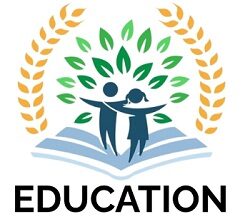Our society is slowly deteriorating and human interactions are really lacking: we do not respect each other, we mistreat each other, we encourage frustration and hysteria to the limit, we are self-centered, we clearly ignore good manners, we allow the ends to justify the means, and this without regret. We do not like ourselves, we do not like what we see in others and we shamelessly watch how, generation after generation, the mud becomes more and more attractive. What should be done?
“People without culture are easy to manipulate,” said Kant. People without education are not truly free, because freedom means the development of creativity and human genius in any field of activity, from entrepreneurship to art.
There are two metaphors that emphasize the importance of education. The first refers to man as a cell of society. If you want to have a united society, you must have people of integrity. If the cells of a body are left to chance, you will have a chaotic situation. It is the organizational structure that gives coherence and usefulness to the whole. In the second metaphor, the education of the individual can be compared to the quality of the bricks of a building. If you want to have a solid structure, use superior quality materials. No matter how ingenious your engineers or creative the architect, if the basic material is of poor quality, the result is compromised. In general, we agree on this point, but too often we stop before reaching the end.
If each of us made efforts to become “better,” society would have a higher degree of civilization and we could find our purpose more easily. Education is a winner on two levels: on the individual level and on the social level. Education is the process of laying intellectual foundations and moral edification.
An anecdote about the Romanian philosopher Constantin Noica describes him visiting a high school, speaking to young students about the importance of learning. The philosopher presented two options: either we enter the orbit of education and become subjects, choosing our own role within society, or we remain objects of manipulation by others. In other words, either you take your life into your own hands through education, you trace your own path and refuse to be satisfied with the role given by society, or you become a person that others can use.
Having an education means having a goal in mind, going in a well-defined direction, living life to the fullest using all the potential with which one is born.
God has given you talents, extraordinary skills, intellectual abilities, but you are responsible for what you do with them. Basic education involves following a traditional academic model, but it is not limited to that.
Education does not only mean the accumulation of knowledge, but also involves its transformation: the formation of skills and the formation of character. Education is a process of becoming better. Johann Amos Comenius said: “Man can become a man only through education.”
Ellen White writes of this: “Our ideas of education are too narrow, too limited. We must broaden them and aim higher. True education involves more than the pursuit of certain courses of study. It involves more than preparation for the present life. It involves the whole being, and the whole span of life that is open to man. It is the harmonious development of the physical, mental, and spiritual faculties.”

